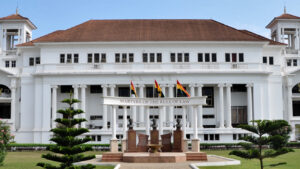Midweek Holidays to Be Moved to Fridays, with Weekends Shifting to Mondays

Ghana’s Parliament has approved the Public Holidays and Commemorative Days (Amendment) Bill, 2025, which brings significant changes to the country’s official public holiday calendar. The new legislation, which amends the existing Public Holidays and Commemorative Days Act of 2001 (Act 601), introduces a new statutory holiday for the Muslim community, restores the celebration of July 1 as Republic Day, and adjusts the scheduling of midweek holidays to maximize the length of weekends.
Key Changes and New Holidays
One of the most notable additions is the establishment of Shaqq Day as a statutory public holiday for Ghana’s Muslim population. Shaqq Day will be observed the day following Eid-ul-Fitr, complementing the already recognized Eid-ul-Adha. This move reflects the government’s ongoing efforts to ensure that the religious diversity of Ghana is respected and that the Muslim community receives formal recognition of their important cultural observances.
The bill also restores July 1 as a full public holiday commemorated as Republic Day. This holiday had previously been removed or diminished in significance but is now being brought back as a unifying national celebration. The government’s rationale is that July 1 holds deep historical and cultural importance for Ghana, symbolizing the country’s republican status and fostering a sense of national unity.
Conversely, the bill removes August 4 as Founders’ Day and reinstates September 21 in its place. The government cited concerns that August 4 had become a divisive date in Ghana’s political and social discourse, and the switch to September 21 aims to unify the nation under a more broadly accepted Founders’ Day.
Shifting Midweek Holidays to Fridays
Another important aspect of the legislation is the adjustment of midweek holidays. Under the new law, any public holiday that falls on a Tuesday, Wednesday, or Thursday will be shifted to the nearest Friday. This adjustment is designed to extend weekends, enabling citizens to enjoy longer breaks and potentially boosting productivity and work-life balance. This approach aligns with trends seen in other countries that seek to maximize the economic and social benefits of public holidays.
Parliamentary Process and Justification
The bill was fast-tracked under a certificate of urgency due to its perceived national importance and was presented to Parliament by the Minister of the Interior, Mohammed Mubarak Muntaka, on June 24, 2025. Parliamentary committees on Defence and Interior as well as Constitutional and Legal Affairs reviewed the bill and recommended its urgent passage.
In his presentation, Minister Muntaka explained that the government sought to streamline Ghana’s public holidays by maintaining those days that enjoy broad national consensus and eliminating those that have become contentious. He highlighted that key holidays such as New Year’s Day (January 1), Constitutional Day (January 7), Independence Day (March 6), Good Friday and Easter Monday (Christian holidays with dates varying between March and April), Labour Day (May 1), and Farmers’ Day (celebrated on the first Friday in December) would remain intact.
Muntaka emphasized that reinstating July 1 as Republic Day was crucial because it is a day “the country is united around” and one that holds great historical significance. The Minister also clarified that the bill introduces 14 public holidays in total, a number he deemed reasonable and not excessive for the country.
Opposition Concerns
Despite the government’s rationale, the Minority in Parliament expressed dissatisfaction with the expedited process, arguing that more pressing national issues deserved Parliament’s attention before changes to the holiday calendar. They contended that the certificate of urgency was unwarranted and that thorough public consultations should have preceded the bill’s passage.
Nevertheless, the bill passed successfully and will now become law, shaping Ghana’s public holiday calendar for the foreseeable future.
Implications for Ghana
The amendments reflect a balanced approach to honoring Ghana’s diverse cultural and religious landscape while promoting national unity. Introducing Shaqq Day and officially recognizing July 1 as Republic Day acknowledges the country’s rich history and pluralistic society. Shifting midweek holidays to Fridays aims to support workers and businesses by creating longer weekends, which could lead to increased productivity and improved well-being.
The reinstatement of September 21 as Founders’ Day in place of August 4 seeks to reduce political and social divisions tied to historical commemorations, fostering a more cohesive national identity.
Overall, the Public Holidays and Commemorative Days (Amendment) Bill, 2025, represents a significant update to Ghana’s calendar of public observances, combining respect for cultural heritage with pragmatic adjustments to benefit society and the economy.






